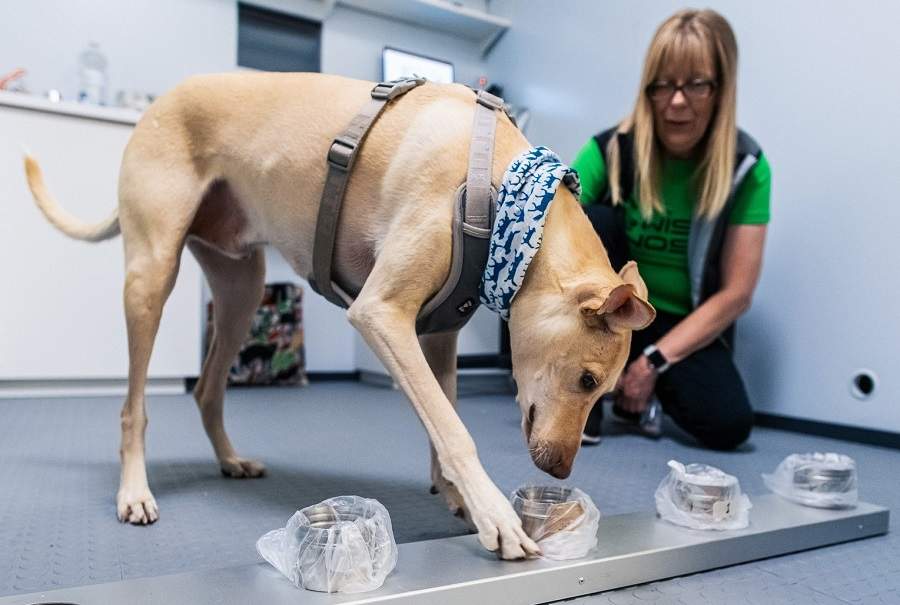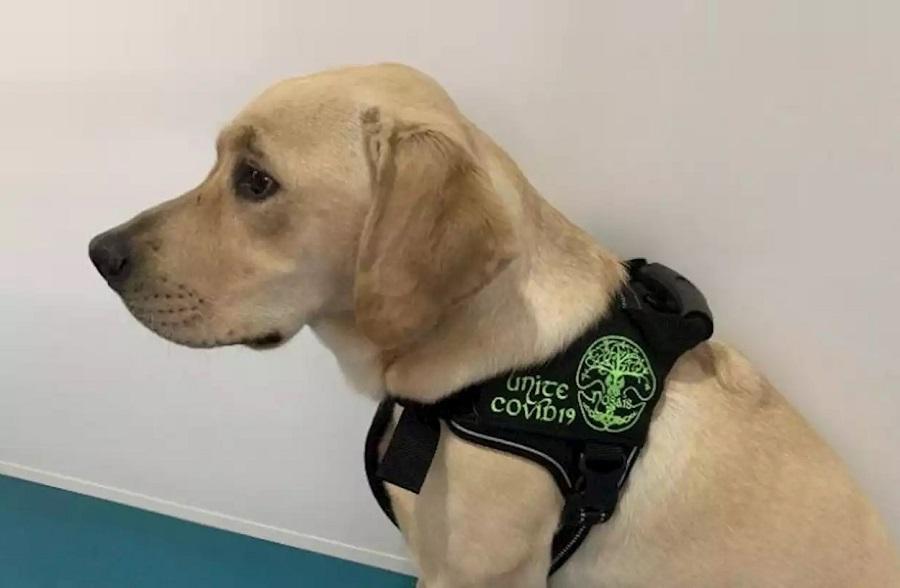Confirming earlier tests, including some done at airports, more testing shows that dogs really can detect Covid-19. But how reliable are they? Can they replace testing?
We humans take in the world around us mainly by using our eyes and ears. Our sense of smell is more about detecting nasty stuff, that we’d prefer to avoid. Dogs are different. Their hearing isn’t too bad, their sight is actually not horrible, but not great. But they all have great noses.
Breeds vary, but let’s just say that they all have good enough noses that their sense of smell trumps sight and sound, as their main sensory organ. We can barely get our heads around that, but we can test for it. We know they can smell drugs, explosives, cancer and even Parkinson’s. And now multiple sources confirm that dogs can detect Covid-19.

We have already seen the work of a team of friendly canines at Finland’s Helsinki airport. The dogs formed part of a long-term test project, to see if they really can detect Covid-19. Passengers rub a piece of cloth against their skin, then put it in a container. In a different room, the dogs smell the sample. Then the passenger undergoes a normal PCR test. Comparing the results shows if the dogs can do it.
An Interesting New Test
The Finnish test run from September until December, with more tests in Chile and the United Kingdom following it. Then more recently, a combined team of researchers made more systematic testing in hospitals, in Paris and Beirut. A total of 177 people went through testing. Researchers had already determined that 95 of these people were positive for Covid-19, with 82 being negative.
The test involved sweat samples. The dogs in the test were already trained to detect explosives, with some having seen more uses as well. Researches didn’t know whether the participants had any history of drug abuse, so they avoided illicit drug-detecting animals. The results show that dogs really can detect Covid-19. But there is a catch.

Six different dogs took part in the test. The success rate was between 76% and 100%. Two dogs could detect Covid-19 with a 100% success rate in 68 tests. These dogs previously specialized in detecting colon cancer. Two dogs even insisted (in repeated tests) that two specific participants were positive, who had previously tested negative. The researchers notified the hospital, who re-tested the two individuals. They were positive.
OK Dogs Detect Covid-19, But Can We Use Them?
The results weren’t perfect, but video recordings of the tests showed factors that affected the dogs that did less well. Researchers learned valuable ways of getting dogs to detect Covid-19 efficiently. They wish to repeat the tests, if possible. In Australia, an ongoing project trains 14 dogs from the country’s border force, to detect Covid-19. They will be focusing on asymptomatic patients.
What does this mean? Can we change the way we detect Covid-19, replacing PCR tests with dogs? Probably not, at least not completely. But dogs could certainly play a role in how we approach public places, including airports. With vaccines on the way, a means to make testing at airports much faster and cheaper may be around the corner.

This could still ease the restart of travel. Other than quarantines, a big barrier in people’s minds is uncertainty. If people can quickly go through a process where dogs can detect if they have Covid-19, the public’s confidence in travel would rise immensely. And the cute doggies can be in the next room, for those people who don’t like them.
But this process could take time to reproduce in large enough numbers (of dogs) to help in the short term. Training dogs (for any purpose) takes time – and money. By next summer, when we can finally go on holidays again, we will likely see more dogs in airports.




1 comment
Andre T
One thing not discussed are they detecting people at infectious stage? You can test positive with the PCR test 10 days after the contagious stage. Is that the same with the dogs?